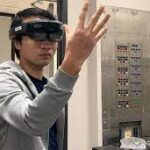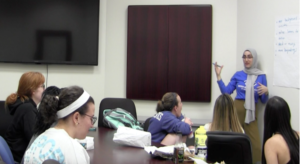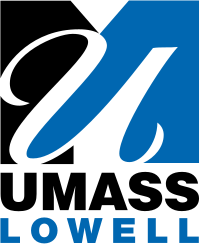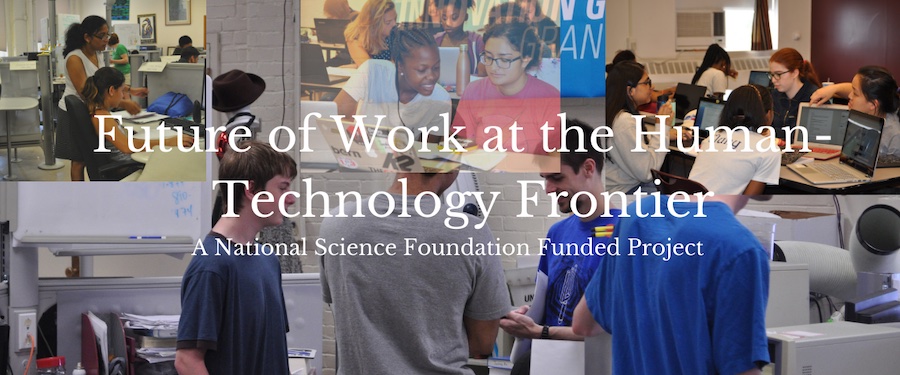The initial prototype AR system that will be used for engaging key stakeholders for this investigation is operational at the University of Akron in PI Sastry’s Lab. This system has been successfully demonstrated at the NASA Johnson Space Center through the NASA SUITS Competition in 2018, 2019 and virtually in 2020.
operational at the University of Akron in PI Sastry’s Lab. This system has been successfully demonstrated at the NASA Johnson Space Center through the NASA SUITS Competition in 2018, 2019 and virtually in 2020.
We have implemented Participatory Action Research and studied its effectiveness in engaging students to address and improve problems in the Francis College of Engineering at UMASS Lowell and bring this experience to engage AR users in co-creating and contributing to the human-factor design of AR systems in workforce training.

The needs of stakeholders in manufacturing industries will be addressed by Prof. Brunette at OSU using the principles of community-based participatory research (CBPR).
Participatory Design Process for Co-Creating Augmented Reality Based Education and Training Systems
Emerging technology advances, such as the Electrification of Vehicles, demand creative and effective approaches for reskilling the industry workforce by harnessing their current skills and expertise and providing new digital skills.
While AR Systems have matured in their capabilities, creating effective AR content remains challenging. This investigation explores how human factors that provide measurable outcomes of the learning and training experience can be integrated to create AR content that enables inter-generational communication and knowledge sharing among future workers with diverse backgrounds.
Utilize a prototype AR system to conduct Participatory Action Research (PAR) Focus Groups with representative ‘future workers’. Extract themes from the PAR data and revise AR System iteratively with input from key stakeholders (Delphi Method) drawn from manufacturing, social-sciences, education and engineering.
Our models and processes for AR integration will be anchored in participatory design and universal design learning principles where future workers will collaboratively co-create educational content in emerging media formats while working closely with experts from multiple disciplines.
We are recruiting project participants for AR system usability studies which will be conducted on the University of Massachusetts Lowell, North Campus. Help us evaluate state-of-the-art augmented reality systems such as the Microsoft Hololens 2 and the Varjo VR/XR systems. We will provide initial training on the use of AR systems and have you experiment on the use of these devices in assembling a mechanical system. You will also engage with researchers in a few focus-groups to help us refine our design.



